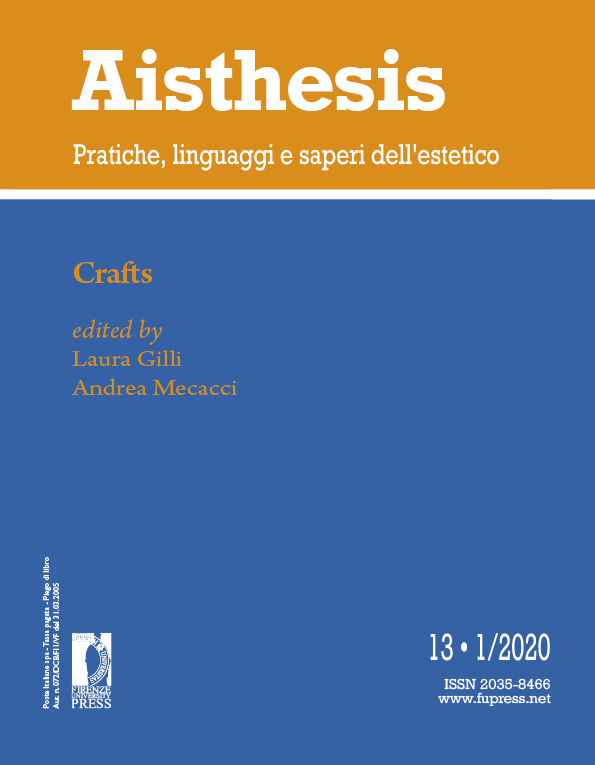Published 2020-06-19
Keywords
- Agency,
- performativity,
- animism,
- anti-anthropocentrism,
- Judith Butler
How to Cite
Abstract
In contemporary human and social sciences, it has become almost a commonplace to attribute to objects and artefacts the features of personhood and subjectivity. In the last decades, significant attempts have been made, in different disciplines, to show how things and material realities have the power to act upon the world and to transform human cognition as well as social processes. In order to describe the transformative power of things, scholars have then recurred to the semantic sphere of action and will, to stop seeing agency anthropocentrically as a solely human property, by recognizing to inanimate entities, if not intention and desire, at least the role of social «agents» or «actors». By focusing on the recourse to the notion of «agency», I will single out some of the internal tensions that still inhabit this scientific trend, and, by drawing on the notion of «performativity», introduced by J.L. Austin and developed by Judith Butler, I will suggest a way to develop further the entanglement between material culture and the construction of identity.


